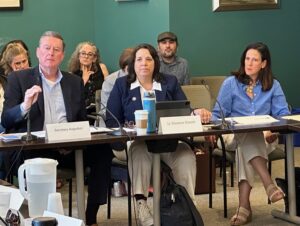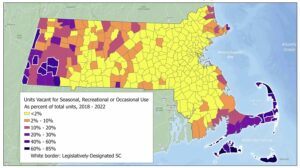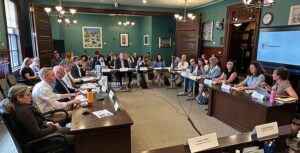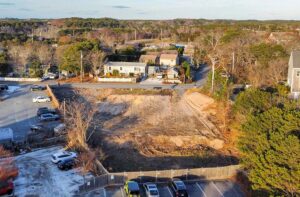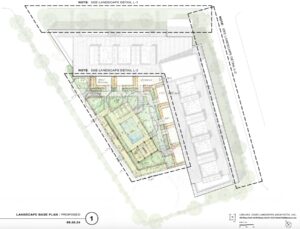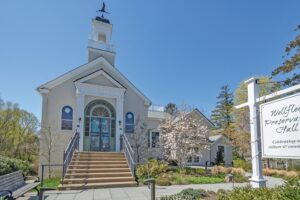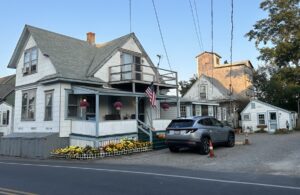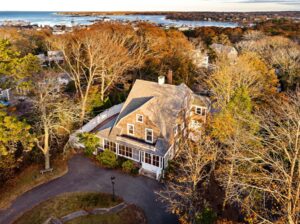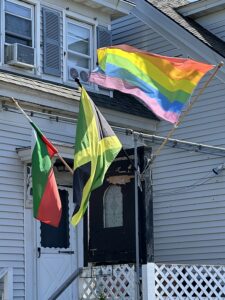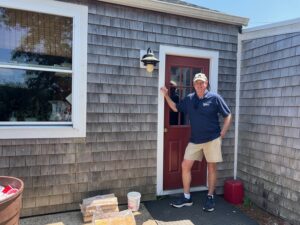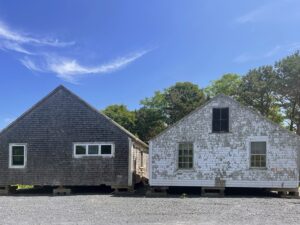EASTHAM — At the planning board’s July 16 meeting, chair Dan Coppelman said the board had entered “new territory” — the first application submitted to the town under its inclusionary zoning bylaw, adopted at town meeting in May 2022.
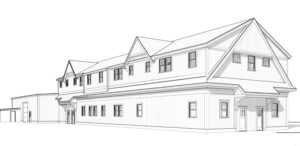
The plan, for the addition of six apartments above an existing commercial building at 425 Massasoit Road, was brought to the board by Orleans resident Matthew Cole, who owns the Eastham construction company Cape Associates.
The inclusionary bylaw requires that any single project resulting in a net increase of five or more units include a certain amount of affordable or workforce housing. Six-unit proposals, such as the one for 425 Massasoit Road, are required to include a single affordable unit.
The affordable unit must be identical to the others in terms of construction and layout, but its rent will be restricted so it is available to those making up to 80 percent of the county’s area median income as defined by the federal Dept. of Housing and Urban Development. That 80-percent income threshold is currently $74,800 for a single person or $85,450 for a two-person household.
Cole told the board that the existing building at the site was “a source of embarrassment” that “needs to be cleaned up” and said he wanted to add to the town’s housing inventory in the process.
The structure at 425 Massasoit is a 7,652-square-foot office building and woodshop that Cape Associates purchased from Cape Abilities in 2018. The rebuilt structure’s footprint would stay the same, according to project documents, and a new second story on top of the existing office space would include the six new units.
Planning board members Michele Vion and Patricia Canavan both said they were ready to vote on Cole’s proposal at the July 16 meeting. “I think the staff did a great job of tying in this project with the strategic plan and the market study,” Canavan said.
Coppelman said he liked the project but wanted extra time to study the proposal. The board voted to continue the discussion on Aug. 20.
Need for Housing
Cole says that he employs about 130 people at Cape Associates, but that he, “like many other employers,” is continually challenged by an “inability to find suitable housing” for his workers.
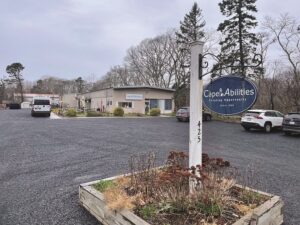
“Over the last several years, we’ve been more or less forced into building apartments to try to be part of the solution,” he told the Independent. “We own rental apartments in Eastham, Orleans, and Chatham. This property is one that will add to that supply.”
Cole said that when his company recruits employees, “folks think they’ll be able to find housing either immediately or over time, and that doesn’t always happen.”
Cole told the planning board on July 16 that Cape Abilities was also experiencing staffing troubles when it decided to sell the property to Cape Associates in 2018. The nonprofit, which at one time offered day services to 35 people with disabilities at the building on Massasoit Road, continued renting the building from Cape Associates for four more years before closing its Eastham location in 2022 and moving operations to Hyannis.
Cole said he had considered creating two two-bedroom apartments and two one-bedroom apartments on the building’s second floor but ultimately decided that six one-bedroom units “would serve the market better.” He said he plans to give Cape Associates employees preference when filling the rental units, but that he would open them to the general public if they weren’t rented quickly.
Creating six units instead of four triggered the town’s inclusionary zoning bylaw, which Cole said created an “additional amount of administration time and bureaucracy” to navigate.
“I don’t think this provision is perfect,” Cole said, adding that he thought the threshold for requiring affordable units ought to be higher than the current five. Cole said that Orleans’s inclusionary bylaw is triggered at 10 units.
Eastham Town Planner Paul Lagg told the Independent that developers choosing to build fewer units to avoid triggering the bylaw is “always a possibility.”
The bylaw could be revised, he said, adding that “I think there’s some flexibility that’s needed to differentiate between large-scale housing projects and smaller-scale ones.”
Subsidized Inventory
One of the goals of the inclusionary zoning bylaw is to increase the town’s subsidized housing inventory (SHI) in accordance with Massachusetts General Law chapter 40B, which aims to facilitate affordable housing construction in towns where less than 10 percent of the housing stock is designated affordable.
Only 3.7 percent of Eastham’s year-round housing stock, or 116 units, is on the state’s most recent subsidized housing inventory, and Coppelman said he wanted to be sure the development at 425 Massasoit Road would qualify for inclusion on that list.
“We’re expanding our wings and taking on more responsibility,” Coppelman said. “In my opinion, we need to do it correctly.”
Alexis Lanzillotta from the Barrett Planning Group in Hingham was on hand to answer questions from board members about the bylaw and the inventory. “You want to make sure that as you’re drafting conditions, you’re ensuring that the project is going to meet requirements for inclusion on the SHI as a local action unit,” she said.
Those requirements include a long-term use restriction and a marketing and resident selection plan, including rules for a waitlist.
“There’s a lot going on with this bylaw, and it’s very complicated,” Lagg said. “Unfortunately for Mr. Cole, he’s the first person through the door to use this.”
